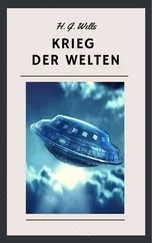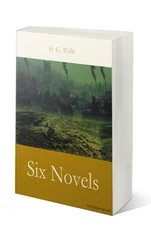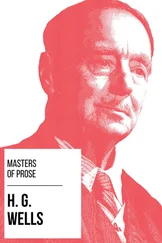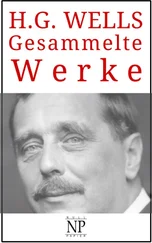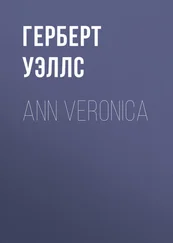she had a little tinge of annoyance at Miss Garvice's advantage.
Afterwards she hunted up the article in question, and it seemed
to her quite delightfully written and argued. Capes had the gift
of easy, unaffected writing, coupled with very clear and logical
thinking, and to follow his written thought gave her the
sensation of cutting things with a perfectly new, perfectly sharp
knife. She found herself anxious to read more of him, and the
next Wednesday she went to the British Museum and hunted first
among the half-crown magazines for his essays and then through
various scientific quarterlies for his research papers. The
ordinary research paper, when it is not extravagant theorizing,
is apt to be rather sawdusty in texture, and Ann Veronica was
delighted to find the same easy and confident luminosity that
distinguished his work for the general reader. She returned to
these latter, and at the back of her mind, as she looked them
over again, was a very distinct resolve to quote them after the
manner of Miss Garvice at the very first opportunity.
When she got home to her lodgings that evening she reflected with
something like surprise upon her half-day's employment, and
decided that it showed nothing more nor less than that Capes was
a really very interesting person indeed.
And then she fell into a musing about Capes. She wondered why he
was so distinctive, so unlike other men, and it never occurred to
her for some time that this might be because she was falling in
love with him.
Part 5
Yet Ann Veronica was thinking a very great deal about love. A
dozen shynesses and intellectual barriers were being outflanked
or broken down in her mind. All the influences about her worked
with her own predisposition and against all the traditions of her
home and upbringing to deal with the facts of life in an
unabashed manner. Ramage, by a hundred skilful hints had led her
to realize that the problem of her own life was inseparably
associated with, and indeed only one special case of, the
problems of any woman's life, and that the problem of a woman's
life is love.
"A young man comes into life asking how best he may place
himself," Ramage had said; "a woman comes into life thinking
instinctively how best she may give herself."
She noted that as a good saying, and it germinated and spread
tentacles of explanation through her brain. The biological
laboratory, perpetually viewing life as pairing and breeding and
selection, and again pairing and breeding, seemed only a
translated generalization of that assertion. And all the talk of
the Miniver people and the Widgett people seemed always to be
like a ship in adverse weather on the lee shore of love. "For
seven years," said Ann Veronica, "I have been trying to keep
myself from thinking about love. . . .
"I have been training myself to look askance at beautiful
things."
She gave herself permission now to look at this squarely. She
made herself a private declaration of liberty. "This is mere
nonsense, mere tongue-tied fear!" she said. "This is the slavery
of the veiled life. I might as well be at Morningside Park.
This business of love is the supreme affair in life, it is the
woman's one event and crisis that makes up for all her other
restrictions, and I cower--as we all cower--with a blushing and
paralyzed mind until it overtakes me! . . .
"I'll be hanged if I do."
But she could not talk freely about love, she found, for all that
manumission.
Ramage seemed always fencing about the forbidden topic, probing
for openings, and she wondered why she did not give him them.
But something instinctive prevented that, and with the finest
resolve not to be "silly" and prudish she found that whenever he
became at all bold in this matter she became severely scientific
and impersonal, almost entomological indeed, in her method; she
killed every remark as he made it and pinned it out for
examination. In the biological laboratory that was their
invincible tone. But she disapproved more and more of her own
mental austerity. Here was an experienced man of the world, her
friend, who evidently took a great interest in this supreme topic
and was willing to give her the benefit of his experiences! Why
should not she be at her ease with him? Why should not she know
things? It is hard enough anyhow for a human being to learn, she
decided, but it is a dozen times more difficult than it need be
because of all this locking of the lips and thoughts.
She contrived to break down the barriers of shyness at last in
one direction, and talked one night of love and the facts of love
with Miss Miniver.
But Miss Miniver was highly unsatisfactory. She repeated phrases
of Mrs. Goopes's: "Advanced people," she said, with an air of
great elucidation, "tend to GENERALIZE love. 'He prayeth best
who loveth best--all things both great and small.' For my own
part I go about loving."
"Yes, but men;" said Ann Veronica, plunging; "don't you want the
love of men?"
For some seconds they remained silent, both shocked by this
question.
Miss Miniver looked over her glasses at her friend almost
balefully. "NO!" she said, at last, with something in her voice
that reminded Ann Veronica of a sprung tennis-racket.
"I've been through all that," she went on, after a pause.
She spoke slowly. "I have never yet met a man whose intellect I
could respect."
Ann Veronica looked at her thoughtfully for a moment, and decided
to persist on principle.
"But if you had?" she said.
"I can't imagine it," said Miss Miniver. "And think, think"--her
voice sank--"of the horrible coarseness!"
"What coarseness?" said Ann Veronica.
"My dear Vee!" Her voice became very low. "Don't you know?"
"Oh! I know--"
"Well--" Her face was an unaccustomed pink.
Ann Veronica ignored her friend's confusion.
"Don't we all rather humbug about the coarseness? All we women, I
mean," said she. She decided to go on, after a momentary halt.
"We pretend bodies are ugly. Really they are the most beautiful
things in the world. We pretend we never think of everything
that makes us what we are."
"No," cried Miss Miniver, almost vehemently. "You are wrong! I
did not think you thought such things. Bodies! Bodies! Horrible
things! We are souls. Love lives on a higher plane. We are not
animals. If ever I did meet a man I could love, I should love
him" --her voice dropped again--"platonically."
She made her glasses glint. "Absolutely platonically," she said.
"Soul to soul."
She turned her face to the fire, gripped her hands upon her
elbows, and drew her thin shoulders together in a shrug. "Ugh!"
she said.
Ann Veronica watched her and wondered about her.
"We do not want the men," said Miss Miniver; "we do not want
them, with their sneers and loud laughter. Empty, silly, coarse
brutes. Brutes! They are the brute still with us! Science some
day may teach us a way to do without them. It is only the women
matter. It is not every sort of creature needs--these males. Some
have no males."
"There's green-fly," admitted Ann Veronica. "And even then--"
The conversation hung for a thoughtful moment.
Ann Veronica readjusted her chin on her hand. "I wonder which of
us is right," she said. "I haven't a scrap--of this sort of
aversion."
"Tolstoy is so good about this," said Miss Miniver, regardless of
Читать дальше



